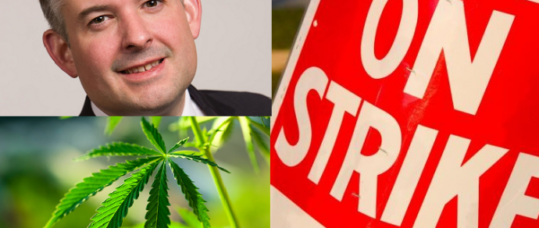A bite-sized look at the most important stories of the week in primary care nursing.
Royal College of Nursing (RCN) members in Northern Ireland voting to strike for the first time in the organisation’s 103-year history was largely met with messages of solidarity from the nursing community across the UK.
Related Article: All GP practices to be trained in supporting veterans in £1.8m programme
The RCN argues the unprecedented move is due to an equally unprecedented situation: pay for nursing staff within the health service in Northern Ireland has fallen by 15% over the last eight years and continues to fall behind the rest of the UK, while the country has nearly 3,000 unfilled nursing posts.
The 12-hour strike will take place on the 18 December following industrial action on the 3, 10 and 11 of December. For those not in the know (no shame there), industrial action involves nurses declining to do non-patient-specific tasks such as paperwork, answering the phone and admin.
Striking during the busy Christmas period that fills healthcare staff with dread was a decision ‘regrettably’ made, said Pat Cullen director of the RCN in Northern Ireland – and surely attests to building desperation among nurses in Northern Ireland.
Will the Department of Health blink? Right now, it doesn’t seem likely: responding to the results of the RCN ballot, it said that there is ‘no separate or untapped source of funding that we can access – nor can money simply found in the budget’.
Related Article: Action needed on ‘damaging’ school nurse decline to help tackle STI rise
Labour have promised an extra £2.5 billion to overhaul primary care as part of their wider £26 billion ‘rescue plan for the NHS’, mirroring the shift away from secondary care and towards the community necessitated by the NHS Long Term Plan.
The party’s plan includes £1 billion a year to reinstate student nurses bursaries in England, a policy the RCN has welcomed after pushing for it for months through its Fund Our Future campaign, and the recruitment of an extra 4,800 health visitors and school nurses after recent alarming figures from the Institute of Health Visiting showed health visitor numbers dropping by 31.8% since 2015.
Related Article: ‘Inadequate’ general practice nursing workforce data must be addressed
But Dame Donna Kinnair, RCN chief executive, stressed that any extra funding is not just for Christmas: ‘This funding must be forthcoming every year – not a one-off – to stand a chance of helping, and must be recognised as only the starting point of a package of investment in nurse education’.
The first two cannabis-based medicines have been approved by NICE – Epidyolex, for adjuvant treatment of seizures associated with two types of rare epilepsy, and the THC:CBD spray Sativex, which is recommended to treat moderate to severe spasticity in adult multiple sclerosis patients.







